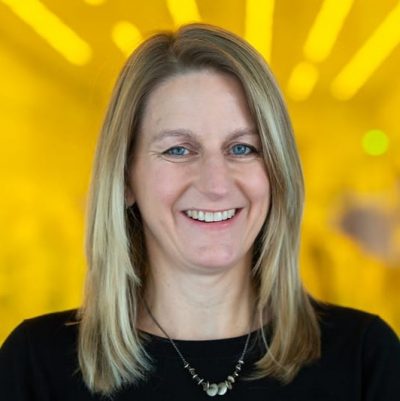
- This event has passed.
09/27/24: Allison Steiner

Please join us for a Great Lakes Seminar Series – subscribe!
Time: 12:00-1:00 pm EDT
Location: NOAA Great Lakes Environmental Research Laboratory, Lake Superior Hall and Virtual
Presenter: Allison Steiner , Professor, Department of Climate and Space Science and Engineering, University of Michigan
Title: Climate, Chemistry and the Great Lakes: What Goes Up Must Come Down
About the presentation: The Laurentian Great Lakes can influence regional climate and chemistry through a variety of mechanisms, and I’ll discuss these chemistry-climate interactions from the perspective of what goes up (e.g., water via evaporation, aerosols via lake spray) versus what comes down (e.g., aerosol deposition of nutrients, precipitation). From the climate perspective, we analyze the atmospheric moisture budget in the Great Lakes region using reanalyses and future climate model data to develop a process-level understanding of the precipitation seasonality. We identify the lakes not only as a source of moisture, but also in generating localized moisture flux convergence/divergence patterns that affect the seasonality of the water cycle. Despite differences in historical simulations from the Coupled Model Intercomparison Project (CMIP6) data archive, common patterns of change are present in the future projections of the atmospheric water budget. Specifically, summer drying and winter/spring wetting by mid-century is consistent across models, indicating a shift in the precipitation seasonal cycle towards colder months, while evapotranspiration magnitudes revealed unambiguous increases throughout the year in all models. Overall, the atmospheric transport of moisture is the primary driver of future precipitation changes, with an amplification of the moisture flux convergence seasonal cycle in future climate model simulations. From the atmospheric chemistry perspective, I’ll discuss the role of the lakes as a source or sink for chemical constituents in the atmosphere. Emissions of lake spray aerosol (LSA) can be a regional source of aerosol, and including LSA in regional chemistry models increases aerosol pH in the Great Lakes region and enables the partitioning of nitrate to the aerosol phase. Overall, this suggests that LSA should be included in regional assessments of atmospheric chemistry and air quality. The deposition of atmospheric aerosols is a source of phosphorus to the Great Lakes region, and while this contribution is small compared to surface runoff, it has not been well-constrained. We quantify the phosphorus deposition to the Great Lakes using a combination of ground-based measurements and models across the region, and highlight uncertainties in this atmospheric source of phosphorus.
About the speaker: Allison L. Steiner is a Professor of Atmospheric Sciences in the Department of Climate and Space Sciences and Engineering at the University of Michigan. She received her B.S. in Chemical Engineering from Johns Hopkins University and her Ph.D. in Atmospheric Sciences from the Georgia Institute of Technology. Her research uses and develops models to explore the interactions of the biosphere and atmosphere, with the goal of understanding the natural versus human influence on climate and atmospheric chemistry. She is the recipient of the Walter Orr Roberts Lecture from the American Meteorological Society (2022), the Ascent Award from the Atmospheric Sciences section of the American Geophysical Union (2015), and the University of Michigan Henry Russel Award (2013). Within the atmospheric sciences community, she has served as an editor at Journal of Geophysical Research-Atmospheres (2014-2018), a member of the National Academy of Science committee on The Future of Atmospheric Chemistry Research report (2016), and a member of the National Academy of Sciences Board on Atmospheric Sciences and Climate (2016-2022). She is currently the President of the Atmospheric Sciences section of the American Geophysical Union.
**Registration is not required**
_____________________________________________________
IMPORTANT VISITOR INFORMATION
All seminar attendees are required to receive a visitor badge from the front desk at the NOAA Great Lakes Environmental Research Laboratory facility. Attendees need to present a valid U.S. photo ID or green card. If you are a Foreign National, we encourage you to attend virtually. For questions regarding building access, please email Margaret Throckmorton at [email protected]. Additional questions? Contact Margaret Throckmorton: [email protected]; visit ciglr.seas.umich.edu for more information.
